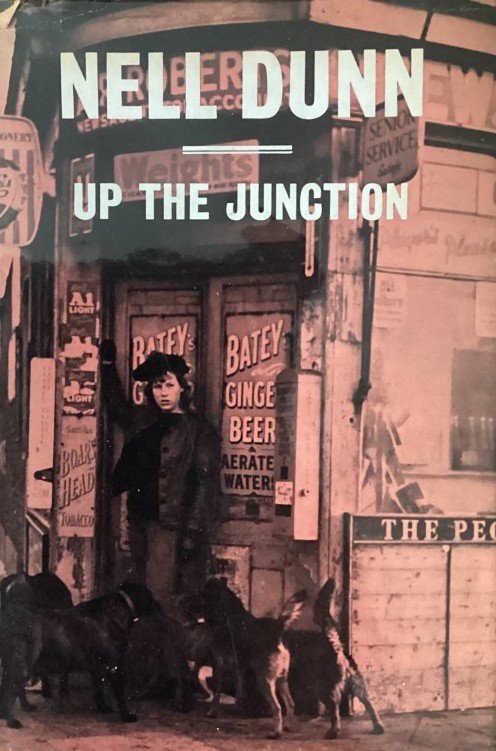Inspiring Older Readers
 posted on 13 Mar 2025
posted on 13 Mar 2025
Up the Junction by Nell Dunn
Just as with Dunn’s first full-length novel, Poor Cow which I reviewed back in 2023 (here), Up the Junction, which came along four years earlier in 1963, struggles with the problem of a middle-class observer trying to capture the lives of the working class without descending to caricature or condescension.
In this case, the structure of the book perhaps helps and plays more to Dunn’s strengths. She has a talent for dialogue and for sparking life from the words she chooses – something which holds her in good staid in this series of loosely related vignettes portraying the lives of a group of late-teenage, working-class young women in the slums of Battersea as they navigate their way through family, friends and sexual encounters.
Nothing in the lives of these young women is very optimistic or beautiful – where they live is soul-destroying and their jobs are mundane and dead-end. What keeps them going is a sort of camaraderie – they’re certainly all in it together – and whatever hedonism they can find usually revolves around boys and the quick thrill. What seems to await most of them is early pregnancy and enforced decisions about marriage or illegal abortions.
These young women have no ‘world view’ and no politics – the day-to-day is as far as they think and Dunn, through the device of a never-named participant narrator, doesn’t proselytise or seek to make easy or uncomfortable sociological capital – these women speak for themselves and, if there are social lessons to learn, they can be found in the way they live their lives.
The star of the show is undoubtedly the dialogue that holds each vignette together. There’s barely any significant descriptive writing here – everything about their lives and their environment, their hopes and their fears can be constructed by through the conversations they have with each other.
The situations they find themselves in can be harrowing and those sections of the book given over to the ‘back-street’ abortions can only fill you with dread. But equally, the thrill of the pillion ride on the motorbike and the sheer crudity of the boy-girl flirtations demonstrate just how the most dead-end of dead-ends need to be found and lived for all they are worth. Life and death are easily-traded commodities in this world.
It’s impossible to read this book and not get black and white British teen-movies of the late 50s and early 60s flashing through your head and it would be easy to consign these lives to history. Certainly much has changed materially and culturally since these vignettes were written but I wonder if the underlying truth of what it means to be trapped in a working class with no future and with only instant gratification to fall back on is really that different now? After all, every dead-end is still a dead-end whenever you’re living in it.
Paperback copies of the book are readily available and you won't pay more than a few pounds for one.
Terry Potter
March 2025